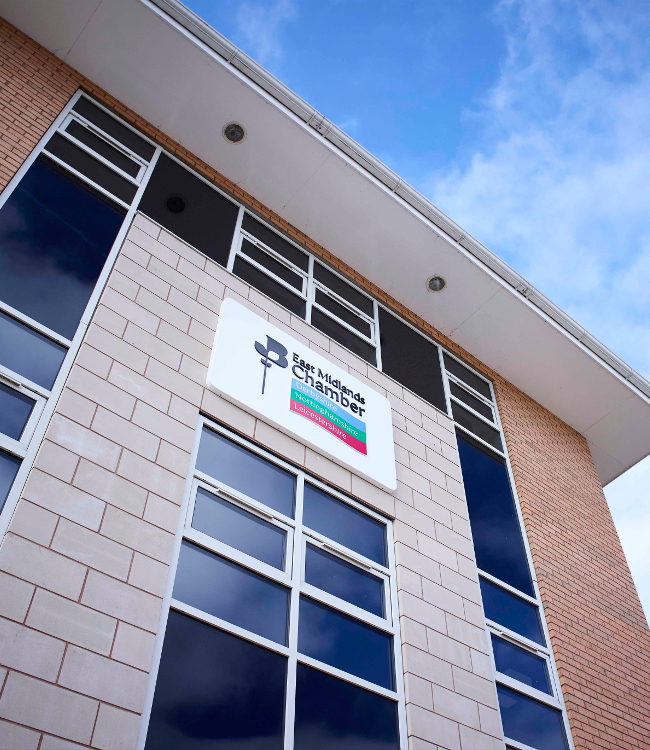Pandemic encourages nine in 10 East Midlands businesses to innovate
Nine in 10 East Midlands businesses have innovated in some form due to the pandemic, according to a new report.
In addition to responding to the impacts of coronavirus on the economy, half of the region’s companies did something differently to survive or grow as a result of Brexit, the joint research by East Midlands Chamber and audit, tax and consulting services firm RSM found.
The organisations have published the findings in a new report, titled Helping you understand innovation in the East Midlands: Business innovation over the past 12-24 months.
It found that many businesses expect to continue innovating over the next two years, with 57% planning for new products and services, but others still face barriers ranging from skills to resources to achieving this.
To overcome these challenges, the report features policy recommendations for Government, including a call for more financial support to increase innovation and collaboration, aligning R&D incentives with Government targets, and additional investment into leadership and management resources.
East Midlands Chamber director of policy and external affairs Chris Hobson said: “The past two years have seen significant change for businesses’ operating environments, with Brexit swiftly followed by the pandemic.
“While this period has caused huge challenges, new opportunities have also arisen that have encouraged firms to make adjustments to the way they operate, create new products and services, or even pivot their business models in some cases.
“Barriers remain, however, with the most significant being a perceived lack of appropriate funding. Further work is needed in this space by funders to understand where current products are falling short and to what extent businesses are aware of funding options available.
“A more general feeling of being too busy is also a significant hurdle. Enhanced support for businesses to build capacity among leaders and managers is required to help overcome this.
“As it becomes clearer which changes to the external operating environment are temporary and which are more permanent, businesses will require continued support to further innovate in these areas.”
Main findings of East Midlands Chamber and RSM innovation study
The research was conducted by East Midlands Chamber during its most recent Quarterly Economic Survey for Q2 2021, in which 432 businesses responded between 17 May and 8 June.
The report found that 45% of businesses “innovated significantly” and 46% “innovated somewhat” in response to the pandemic, with only 9% not innovating at all.
While only half did so in response to Brexit, the proportion jumped to 75% for manufacturers, which have been more exposed to changes in international trade.
Meanwhile, four in five East Midlands businesses (81%) innovated in response to broader challenges or opportunities, with 70% doing so as a response to competition.
For those firms that have innovated, changes to improve workforce efficiency (65%) was the most popular method, followed by creating new products and services (61%), improved IT and technology (55%), and upgrading back-office or support services (45%). A significant find was that one in five transformed or pivoted their business model over the past 12 to 24 months.
Innovation on the road to recovery – and barriers in the way
When looking at plans for approaching continued innovation over the next 24 months, developing new products and services was top of the wish list – with 57% of businesses setting their sights on achieving this.
Almost half (49%) plan to explore the introduction of new technologies or business models, 46% recognise the importance of developing an internal culture to support innovation, and a third (33%) plan to “recruit innovative people”.
It demonstrates the importance companies place in having an appropriate mindset and operating environment in which innovation can take place. Only 4% reported no plans for innovation over the coming period.
A lack of appropriate funding was cited as the biggest barrier to innovation (46%), while four in 10 respondents said they were too busy. A quarter said they lacked the necessary skills in their business, while a fifth believed it to be too risky or unnecessary.
How policy can support future innovation
Innovation can be supported by R&D tax credits, a key incentive and tool available to businesses, which can claim a cash refund or corporation tax reduction for money spent on developing new products, processes or services, as well as enhancing existing ones.
While the East Midlands Chamber and RSM research found 36% of respondents had successfully accessed R&D tax credits previously, 38% didn’t believe they were relevant to them.
Sheetal Sanghvi, partner and head of innovation reliefs in the East Midlands at RSM, said: “The responses to the survey show the scale of the innovation – whether or not they would describe it as such – that has taken place in East Midlands businesses over the past two years, with the pandemic understandably being a significant driver.
“Many businesses have developed new products and services, introduced changes to the way they manage employees, often with significant efficiency gains, and introduced new technology to support their engagement with customers.
“Going forward, general awareness of the importance of the need to continue evolving and innovating in order to succeed is high, but there remain a number of businesses that require further support – both practical and in terms of guidance – in order to maximise innovation activity in the region.
“R&D tax credits play a key part of the Government’s strategy to encourage investment in innovation in the UK. However, a significant proportion of companies – particularly non-manufacturing businesses – do not see these as being relevant to their organisation, suggesting more work is required in the region to raise awareness of this generous tax relief and supporting businesses to navigate the complex rules.”
The report ends with five recommendations for policymakers. These are:
- Enhanced funding and focus on communication of existing policy to support innovation
- Additional investment into leadership and management resource among SME businesses, building on the current Help to Grow Management programme
- Further financial support for those businesses engaged in collaboration activity
- Incentives for businesses to encourage investment in the creation of specific innovation-focused roles, including a greater focus on engagement with educational institutions
- Aligning R&D incentives with the wider Government targets and objectives
Of the 432 businesses that responded to the survey, 34% were manufacturers and 59% were service sector companies, with 46% active in international markets during that quarter.
One-fifth (21%) employed more than 250 people, 32% had between 50 and 249 staff, and 42% employed fewer than 10 people.
To read the full East Midlands Chamber and RSM report, click here.




